We show you how to look after and service your Shimano M530 SPD pedals in seven simple steps…
- How to index your gears
- 5 essential tools for building the best tool kit
- How to safety check your bike
1. Remove the pedal
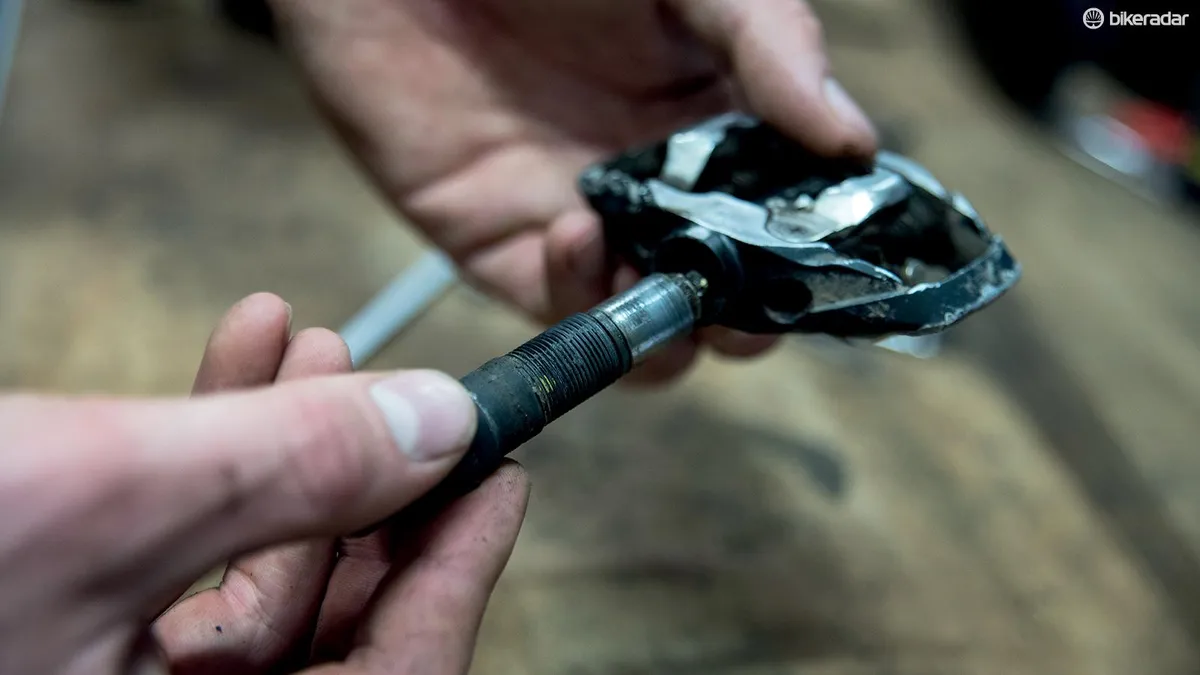
Remove the pedal from the bike and give it a good clean.
Holding the pedal body in one hand, use Shimano’s PD40 tool (or a stout pair of pliers) to unscrew the axle, turning the collar in the opposite direction to the ‘tighten’ arrow.
2. Remove the ball bearings
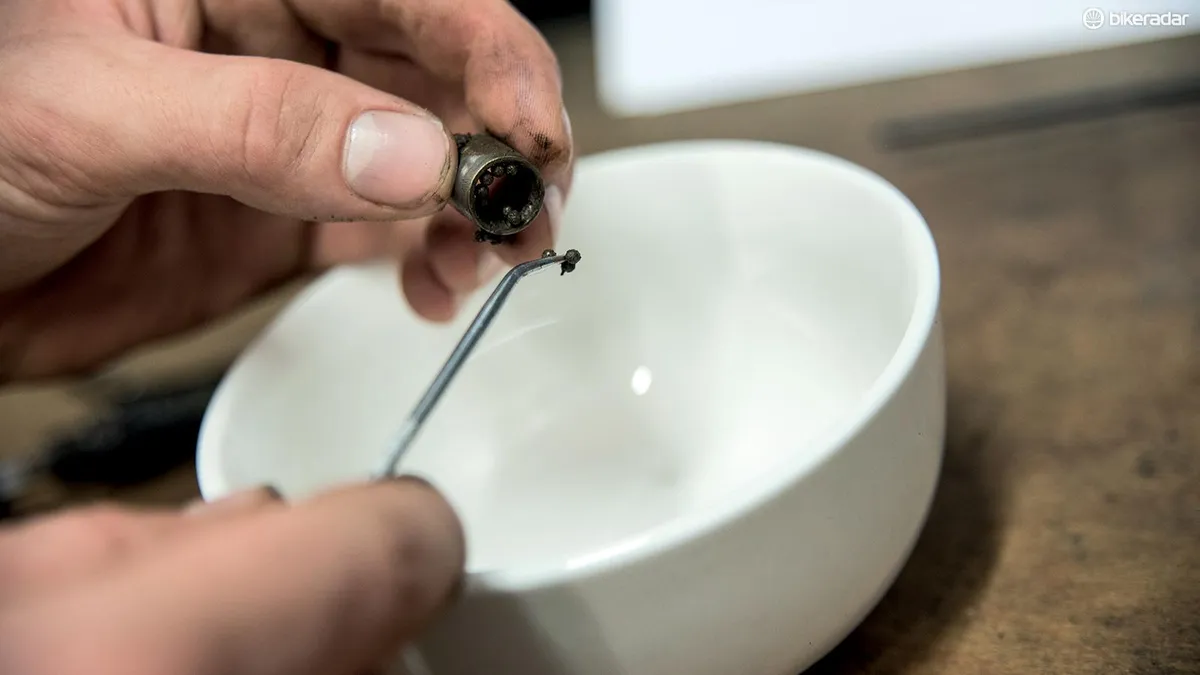
Insert a 6mm Allen key into the end of the axle.
Use a 7mm spanner to remove the first nut from the other end (anticlockwise).
Repeat on the second nut, with a 10mm spanner.
Remove the axle’s bearing housing, using a dish to catch the loose ball bearings.
3. More cleaning
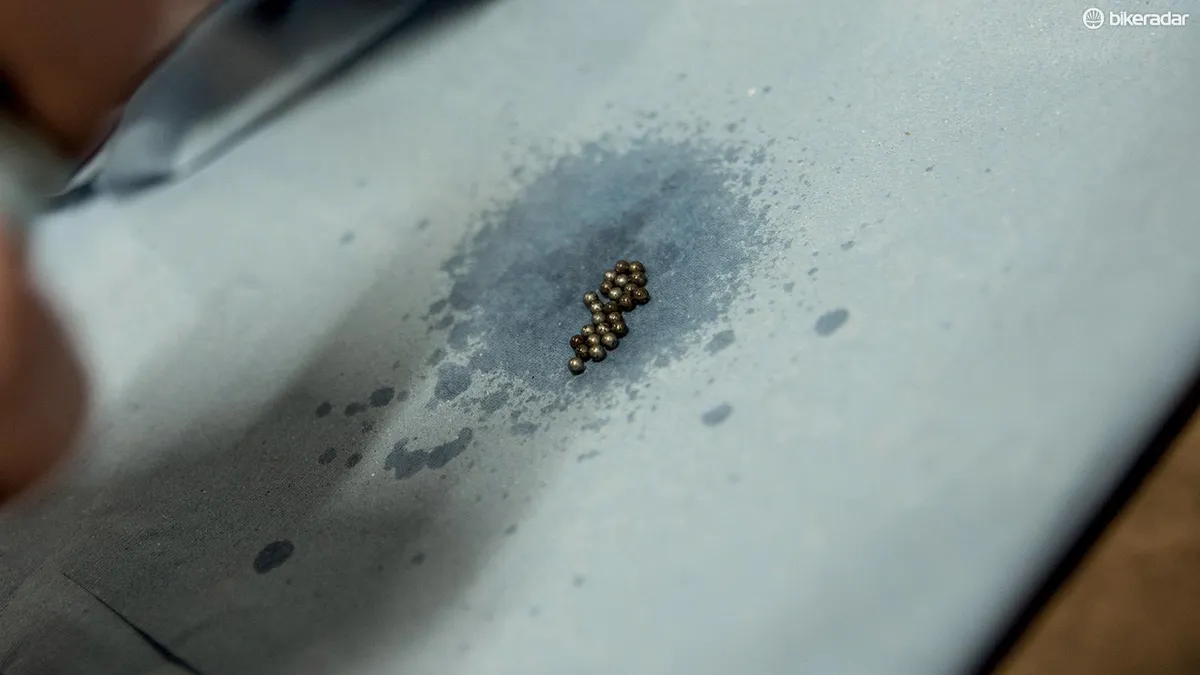
Remove all the bearings carefully and clean them with degreaser and a rag.
Remove the bearing race, threaded barrel and rubber seal from the axle, noting their order and orientation.
Clean all the parts of the pedal axle with degreaser and rags.
4. Replace the bearings
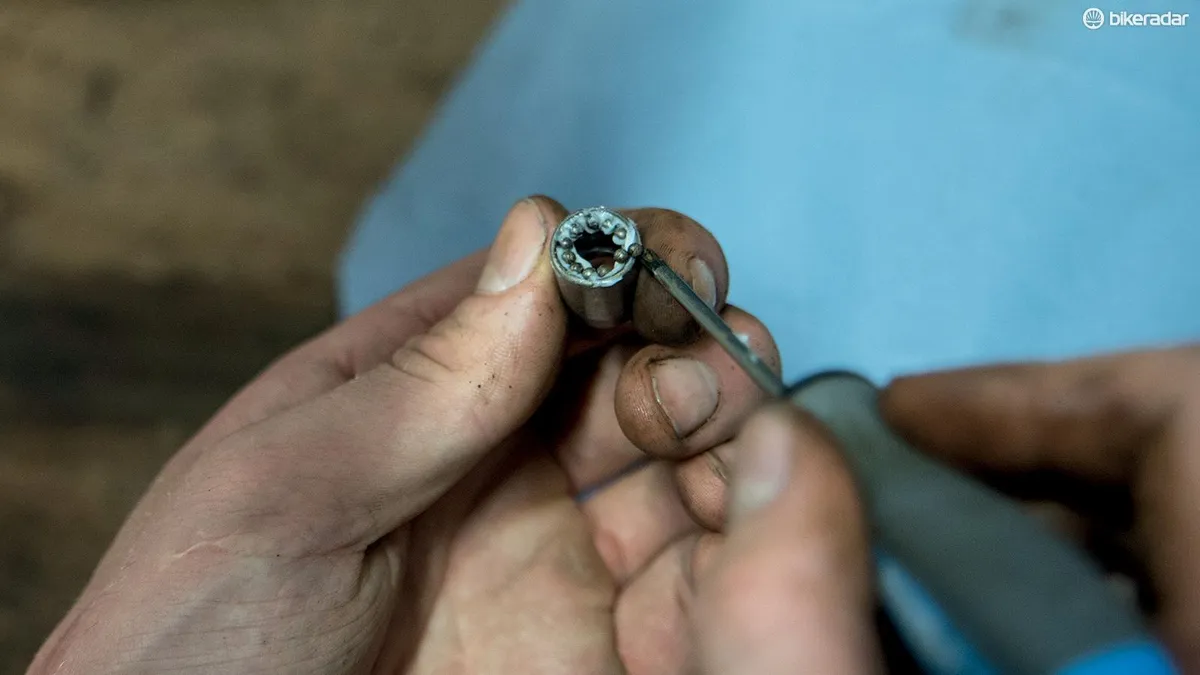
Replace the seal, barrel and bearing race on the axle in the correct order.
Grease the concave end of the bearing race and use a magnetic screwdriver to install 12 bearings.
Push them onto the outer edge of the race to form a neat ring.
5. Grease the housing
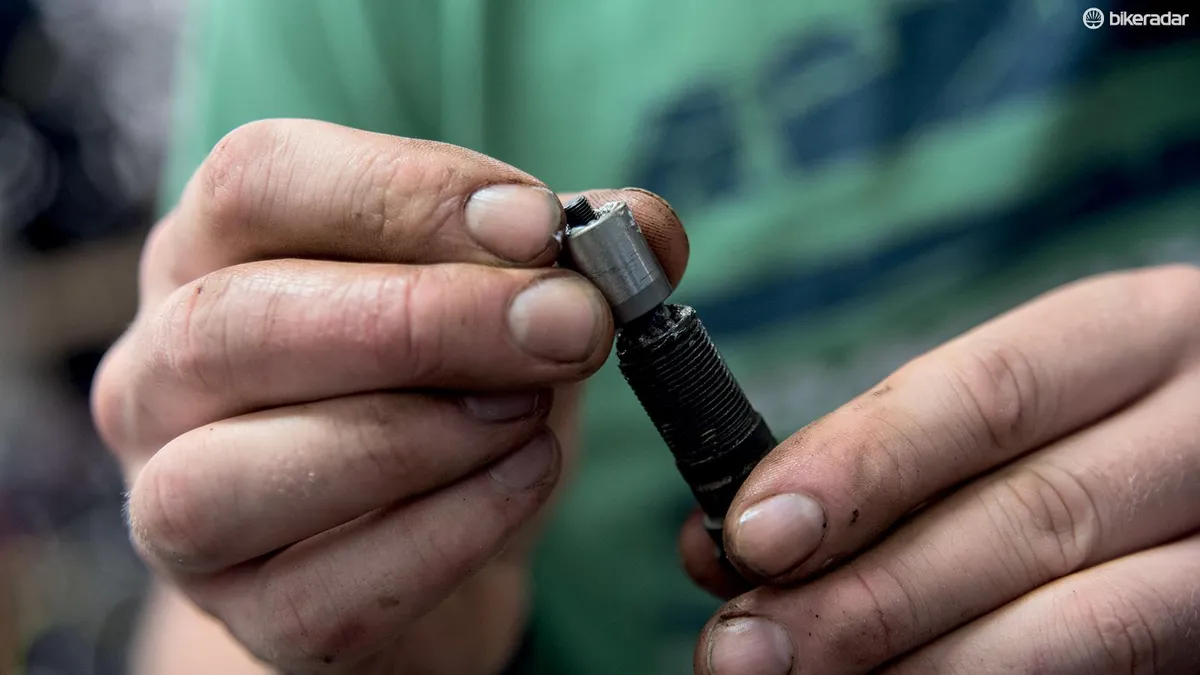
Grease one end of the bearing housing and use the magnetic screwdriver to install the remaining 12 bearings.
Slide the housing onto the axle with the bearing-free end first, so that there are bearings on either end of the housing.
6. Tighten
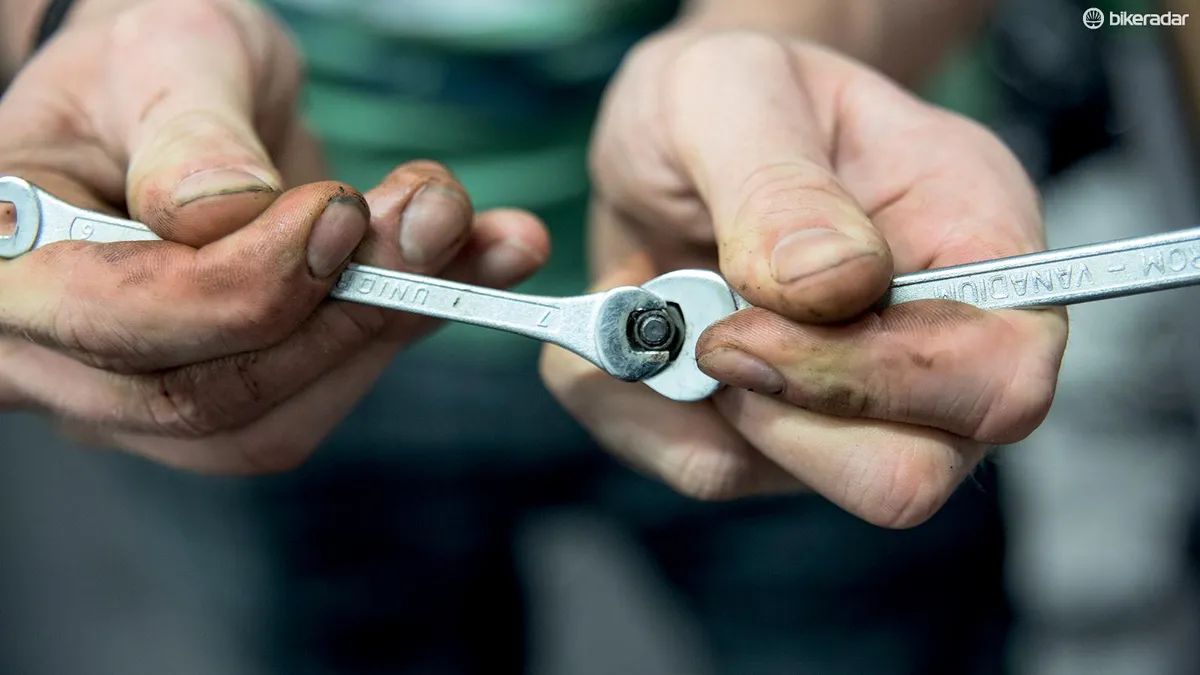
Thread the 10mm cone nut onto the axle (clockwise, tapered end first).
Tighten it with a 10mm spanner until the bearings are free of play but not restricted.
Install the 7mm lock nut and tighten it against the cone using both spanners.
Check for play or friction.
7. Grease and reinstall
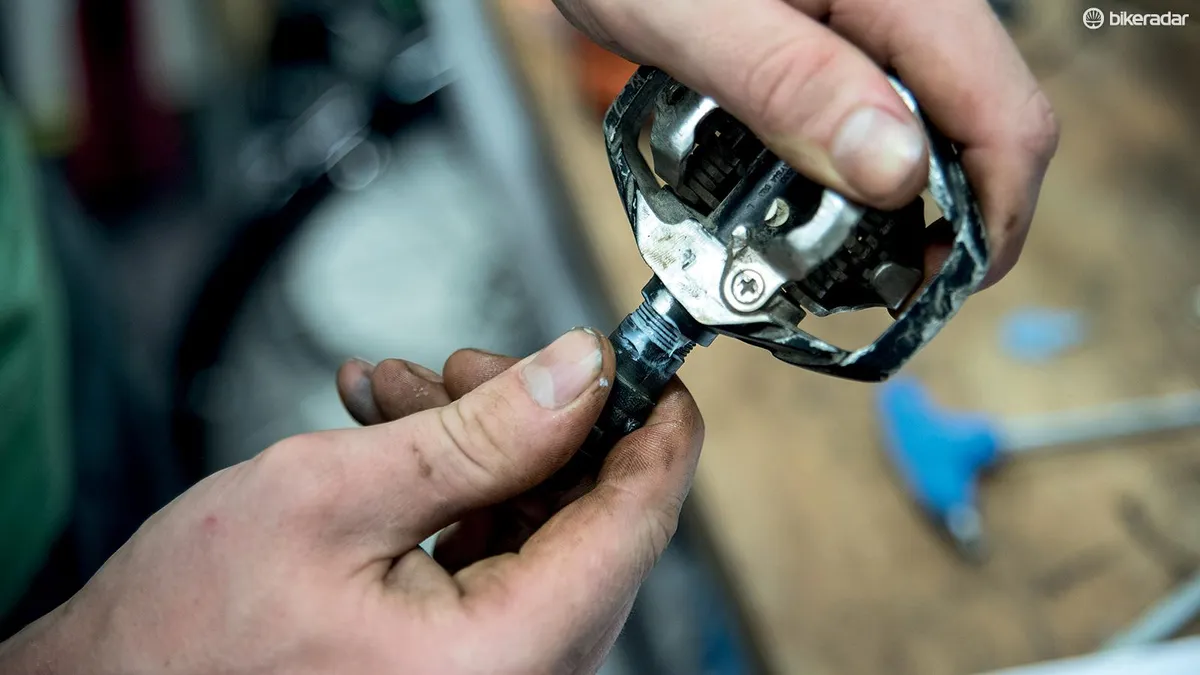
Grease the axle and reinstall it in the pedal body, turning it in the direction of the ‘tighten’ arrow.
Gently tighten the axle against the pedal body using the PD40 tool or pliers.
Grease the external threads and reinstall the pedal on the bike.
Jargon Buster: magnetic screwdriver
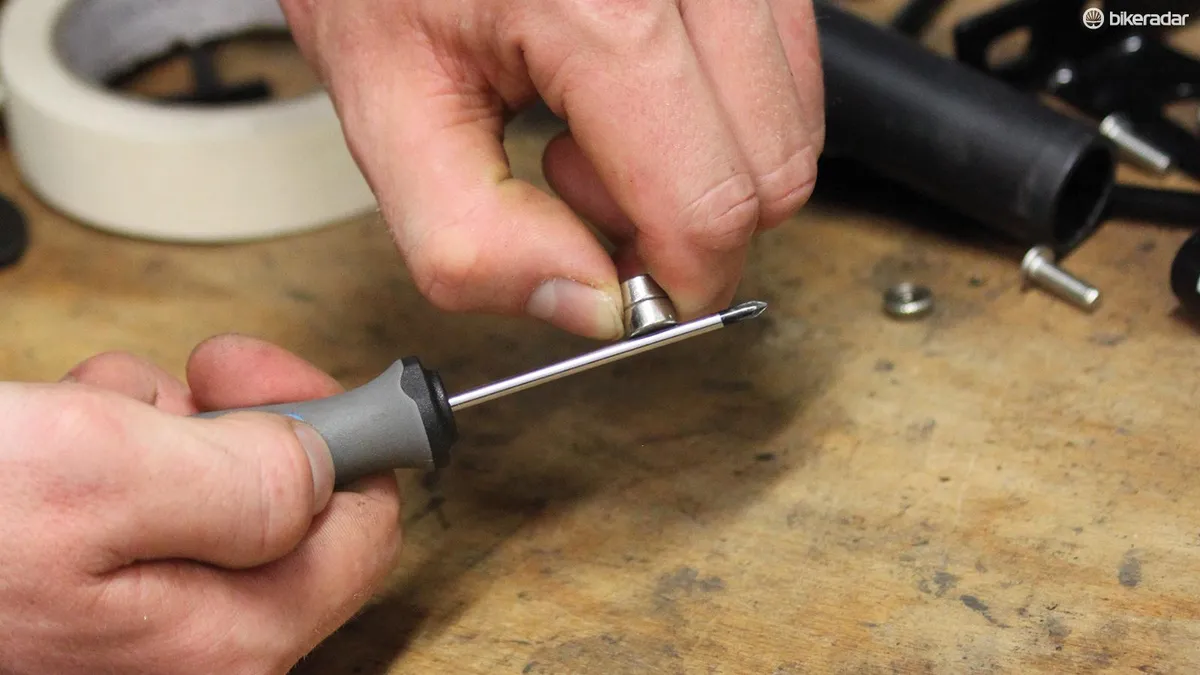
A magnetic-tipped screwdriver is invaluable when removing and installing bearings. Don’t have one? You can magnetise a normal screwdriver by rubbing a magnet along its length several times in the same direction.
